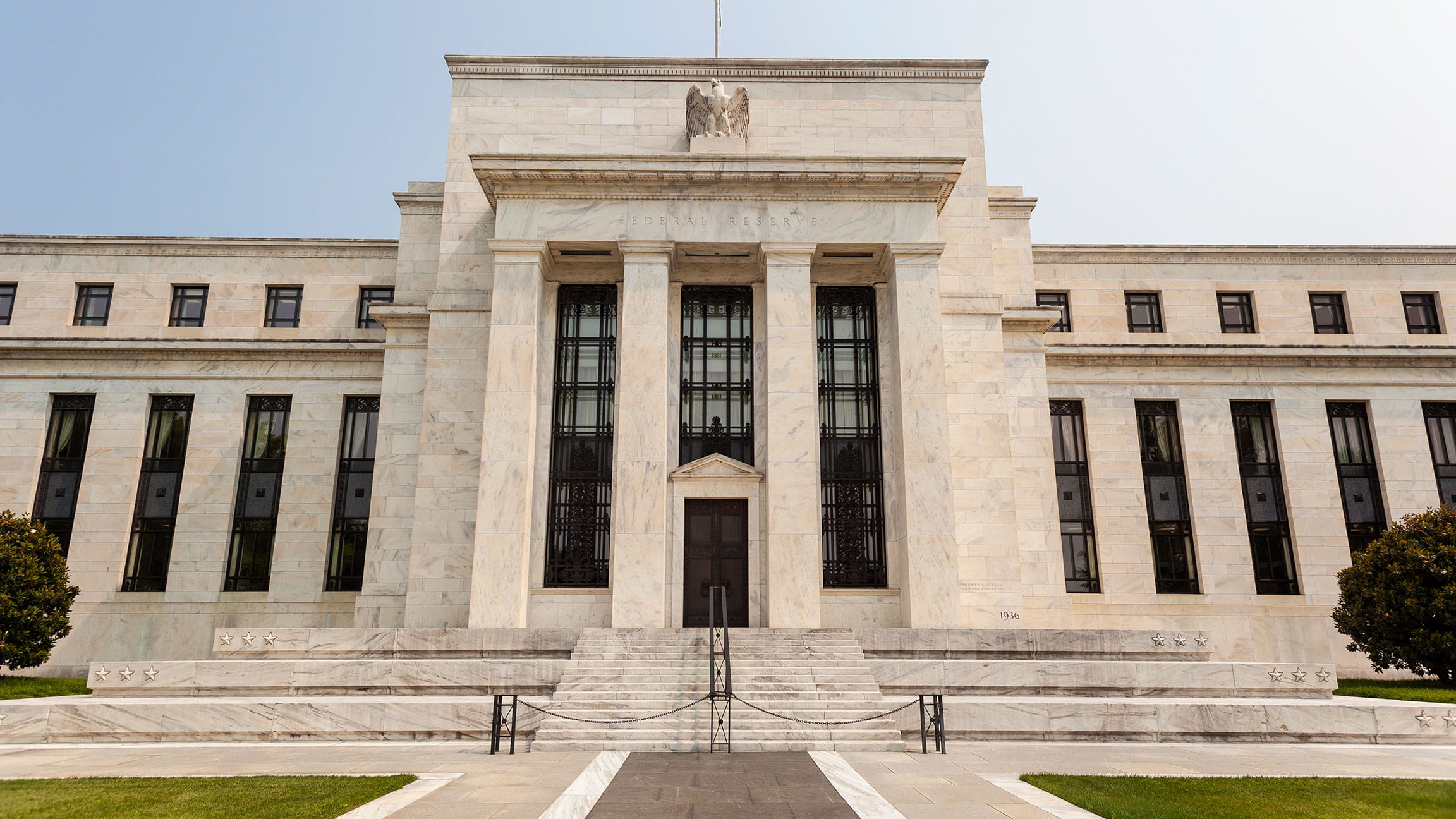Kommentar von Franck Dixmier zur EZB-Sitzung am 25. Juli 2019

Zusammenfassung
Die Rede von Mario Draghi auf dem Forum der Europäischen Zentralbank in Sintra, Portugal, am 18. Juni war ein wichtiger Wendepunkt in der Geldpolitik der Eurozone. Der Präsident der EZB erklärte deutlich, dass die Bank bereit ist, alle notwendigen Maßnahmen zu ergreifen, um das Wachstum zu stützen und sich dem Inflationsziel von 2% anzunähern.
|
Das Wichtigste in Kürze
|
Die EZB geht in Position
Die Rede von Mario Draghi auf dem Forum der Europäischen Zentralbank in Sintra, Portugal, am 18. Juni war ein wichtiger Wendepunkt in der Geldpolitik der Eurozone. Der Präsident der EZB erklärte deutlich, dass die Bank bereit ist, alle notwendigen Maßnahmen zu ergreifen, um das Wachstum zu stützen und sich dem Inflationsziel von 2% anzunähern. Diese Aussagen hatten eine Erholung der Märkte, einer Abflachung der Zinskurve und einer Verengung der Peripherie- und Credit-Spreads zur Folge.
Der Kontext hat sich kaum geändert:
- Die wirtschaftlichen Spannungen nehmen weiter zu
- Das Risiko eines harten Brexits wird immer wahrscheinlicher
- Die Inflation bleibt niedrig: Trotz einer leichten Erholung der Kerninflation im Juni auf 1,1% yoy gegenüber einem Tiefpunkt im Mai sollte sie sich in den kommenden Monaten um 1% bewegen
- Das Wachstum verlangsamte sich im zweiten Quartal
- Die Inflationserwartungen bleiben niedrig
Mit der erwarteten Bestätigung der EZB wird die Sitzung vom 25. Juli wichtig zur Vorbereitung konkreter Maßnahmen: In unserem Szenario gehen wir von einer Zinssenkung um 10 Basispunkte im September und einem neuen Wertpapierkaufprogramm zum Jahresende aus. Die Anfang des Jahres diskutierte Einführung einer mehrstufigen Einlagenfazilität könnte wieder auf die Agenda kommen. Da die Rentabilität der Banken der Eurozone durch eine tatsächliche Steuer auf ihre überschüssigen Reserven beeinträchtigt wird, könnte eine mehrstufige Einlagefazilität ähnlich wie in der Schweiz, Japan, Dänemark und Schweden eine praktikable Option sein. Im Rahmen dieses Systems würde die Besteuerung der Überschussreserven ab einem für jedes Institut definierten Schwellenwert ausgelöst.
Interessant ist auch die Frage, ob die neuen Maßnahmen im EZB-Rat einstimmig beschlossen werden. Mögliche Meinungsverschiedenheiten könnten die Deutlichkeit der Botschaft schmälern. Der angekündigte Führungswechsels in der EZB mit der Ernennung von Christine Lagarde an der Spitze beeinträchtigt den eingeschlagenen Weg sicherlich nicht.
Wir gehen davon aus, dass das Treffen am 25. Juli wenig Einfluss auf die Investoren haben wird. Auch wenn fast die Hälfte der Marktteilnehmer Zinssenkungen um 10 Basispunkte im Juli und um 15 Basispunkte bis zum Jahresende erwartet - und daher von der Beibehaltung des Status quo durch die EZB enttäuscht sein könnte -, sollte die offizielle Bestätigung einer noch expansiveren Geldpolitik positiv aufgenommen werden und die Zinsen auf extrem niedrigem Niveau verankern.
Allerdings bleibt zu erwähnen, dass sich die EZB in einem subtilen Währungskrieg befindet. Mario Draghi hat zwar in Sintra bestritten, dass die Auswirkungen der erwarteten US-Zinssenkungen auf den US-Dollar die Entscheidung beeinflussen, da die EZB keine Wechselkursziele verfolgt. Aber in einer Phase der Konjunkturabschwächung und sinkender Inflation wäre eine Aufwertung des Euro nicht förderlich. Zweifellos werden die Entwicklungen der europäischen Geldpolitik die Anschuldigungen von US-Präsident Donald Trump verstärken, dass die EZB den Euro absichtlich manipuliert, um das Wachstum in der Eurozone zu unterstützen. Weitere Streitigkeiten sind damit vorprogrammiert.
Comments from Franck Dixmier, Global Head of Fixed Income, ahead of the ECB meeting on 26 July 2019
The ECB is ready to take action
Key takeways
- At the ECB’s next meeting, we expect confirmation of the statements Mario Draghi made in Sintra on 18 June: the central bank is ready to take all measures to support growth and move closer to its inflation target, and will likely provide new forward guidance
- We do not expect any concrete action until the ECB’s September meeting, which should open a sequence of lower deposit rates followed by the launch of an asset-purchase programme at the end of the year
- The official confirmation of this new forward guidance should be welcomed by the markets, and should help anchor rates at extremely low levels
- We have entered an undeclared currency war
Mario Draghi’s speech at the European Central Bank Forum in Sintra, Portugal, on 18 June was a major turning point in euro-zone monetary policy. The ECB’s president clearly stated that the bank is willing to take all necessary measures to preserve growth and move closer to its inflation target of 2%. These statements led to a rally in all markets, a flattening of the yield curve, and a tightening of peripheral and credit spreads.
Since then, the underlying context for Mr Draghi’s statements has changed little:
- Commercial tensions are stronger than ever
- The risk of a hard Brexit is still likely
- Inflation remains anaemic. Despite a slight rebound in core inflation in June – to 1.1% year over year, up from a low point in May – it is expected to move around 1% in the coming months
- Growth slowed in the second quarter
- Inflation expectations remain low
The ECB’s next meeting on 25 July is therefore of major importance. By validating the previous announcements, now endorsed by the governing council, the ECB should confirm the modification of its forward guidance. The bank should therefore prepare the ground for its next concrete measures: in our scenario, a 10-basis-point drop in the deposit rate in September and a restart of the securities-purchase programme at the end of the year. The introduction of a multi-tier deposit facility, which was mentioned at the beginning of the year, could come back to the discussions. With the profitability of euro-zone banks being eroded by what is effectively a tax on their excess reserves, a multi-tier deposit facility similar to the one set up by central banks in Switzerland, Japan, Denmark and Sweden could be a viable option. Under this scheme, the taxation of banks’ excess reserves would be triggered above a threshold that is specific to each institution.
On 25 July, it will also be interesting to observe whether the new measures envisaged are unanimously agreed within the governing council: possible dissension within could weaken the scope of the message. However, the recent announcement of the change in leadership at the ECB – the expected appointment of Christine Lagarde as the ECB’s next president – should not affect the strategy the central bank follows.
For investors, the 25 July meeting is expected to have little impact. Even if nearly half of market participants expect a reduction of 10 basis points in July and 15 basis points by the end of the year – and therefore might be disappointed by the ECB maintaining the status quo – the official confirmation of even more accommodative monetary policy should be well-received, and should anchor rates at extremely low levels.
It should be noted, however, that we have entered a phase of an undeclared currency war. Despite Mr Draghi’s denials in Sintra, it is clear that the impact of expected US rate cuts on the US dollar is an element the ECB should take into account, despite the fact that the ECB has no exchange-rate target. As the European economy slows and inflation falls, an appreciation of the euro would not be appropriate, in our view. Undoubtedly, the evolution of the ECB’s monetary policy will fuel accusations by US President Donald Trump that the euro is being manipulated to support growth in the euro zone; this will likely fuel disputes between the euro zone and the United States.
Kommentar von Franck Dixmier vor der FOMC-Sitzung vom 30. bis 31. Juli 2019

Zusammenfassung
Es ist wahrscheinlich, dass die US-Notenbank auf der Sitzung des Federal Open Market Committee (FOMC) am 31. Juli einen Zinssenkungszyklus einleiten wird. Aussagen verschiedener FOMC-Mitglieder wie Präsident Jerome Powell, Fed-Vizepräsident Richard Clarida und dem New Yorker Fed-Präsident John Williams haben den Weg zu dieser Entscheidung ebenso geebnet wie das Protokoll der letzten FOMC-Sitzung.








